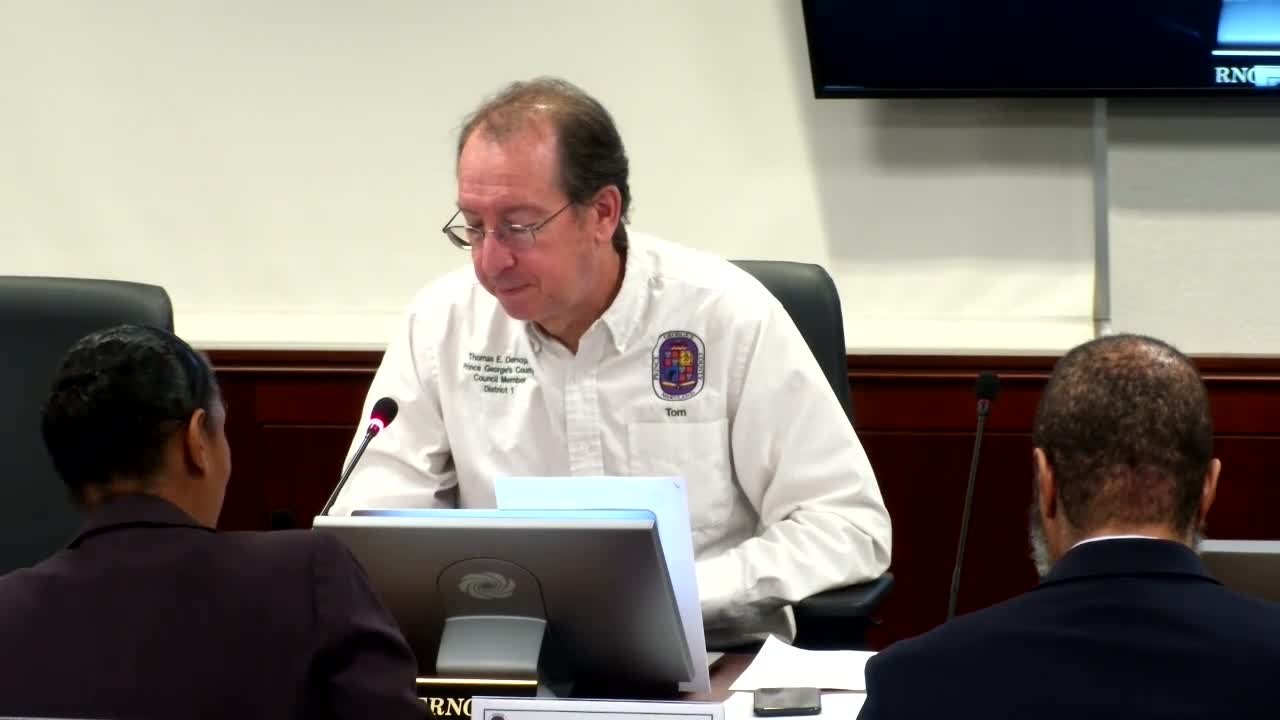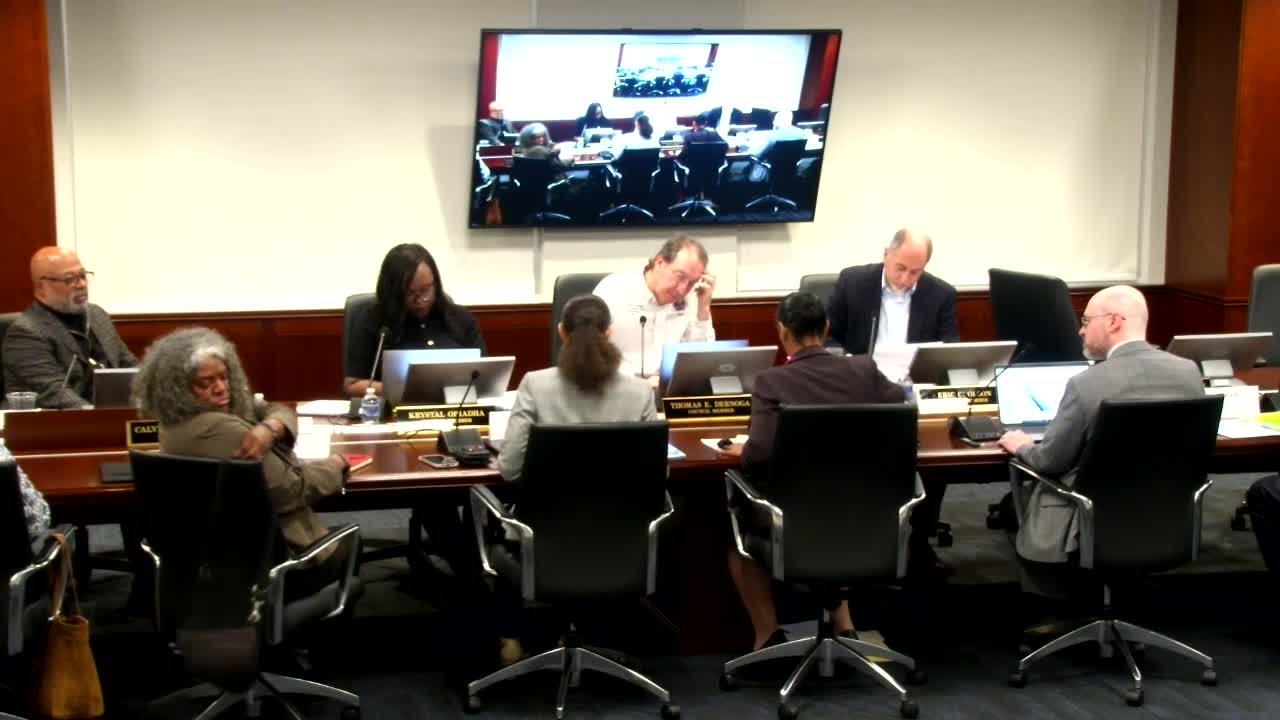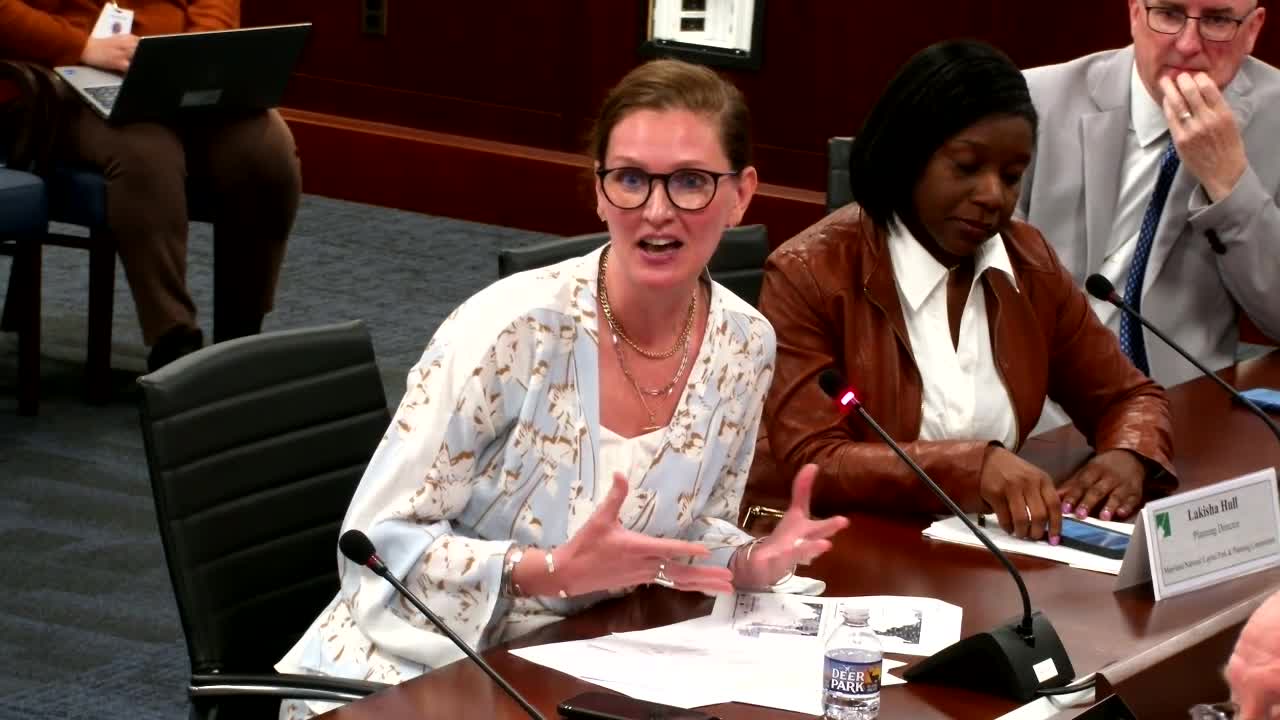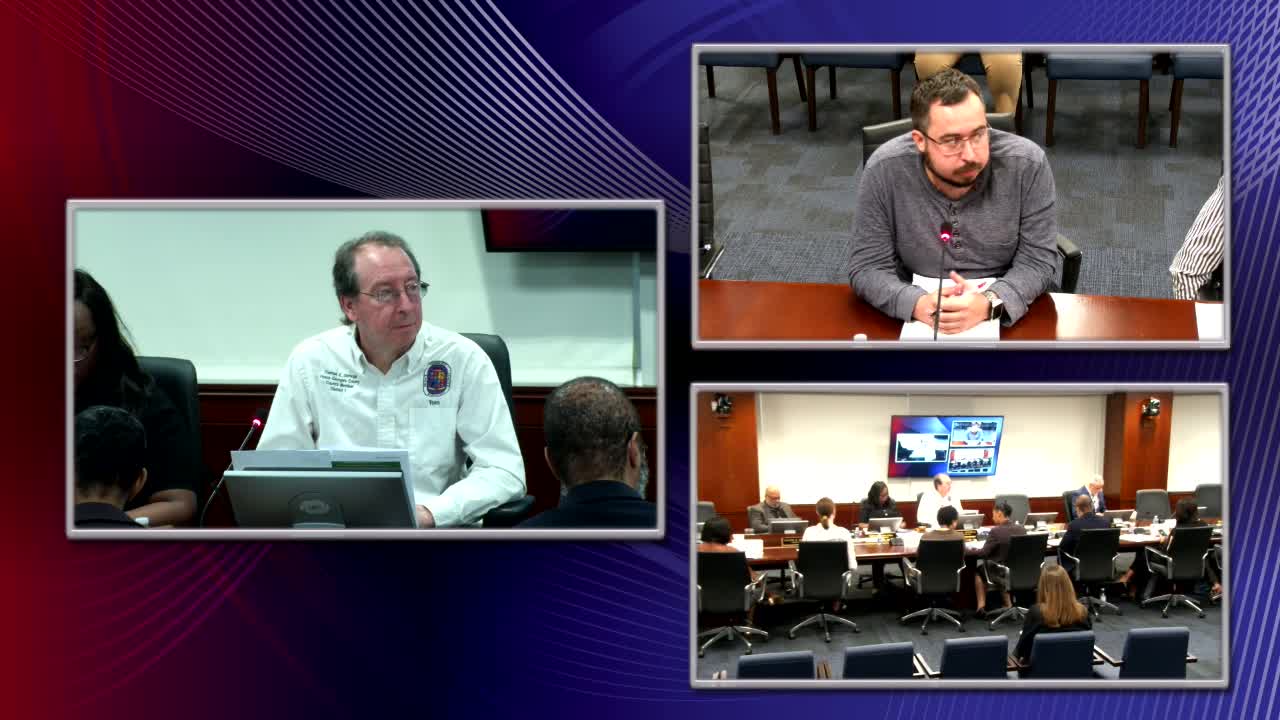Article not found
This article is no longer available. But don't worry—we've gathered other articles that discuss the same topic.

Prince George’s Council committee holds bills to create zoning category for opioid treatment centers after debate over access and safeguards

Experience Prince George’s reports flatting FY26 grant; agency highlights tourism work, WorldPride outreach and funding squeeze

Housing Authority proposes $111 million FY26 budget; agency reports voucher pressure, long wait list and Cottage City redevelopment

